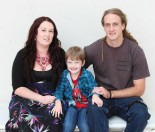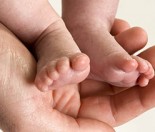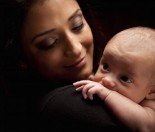The New Zealand Breastfeeding Authority (NZBA) is calling for stronger workplace policies for nursing mothers in a bid to improve national breastfeeding rates once mothers leave hospital.
A big part of the post-hospital breastfeeding decline is a direct result of women feeling alienated about breastfeeding in the workplace and public places. As a society we need to ensure all women have access to ongoing support; that communities are consulted to establish the right facilities and services, and health workers are educated to understand cultural issues.
For many women, the decision to return to the workforce full time is influenced by the breastfeeding facilities available in the workplace. Whether a woman is working in a formal, non-formal or home setting, it is necessary that she is well-supported in claiming her right to breastfeed her child.
Earlier this month, World Breastfeeding Week (August 1-7), emphasised the importance of protecting, promoting and supporting breast feeding in the workplace in light of this year’s theme: Breastfeeding and Work: Let’s Make it Work.
In New Zealand, there are many cases where women abandon breastfeeding partially or completely when they return to work. This is a result of mothers not having sufficient time or a place to breastfeed, express and store their milk.
We strongly believe that creating conditions at work such as paid maternity leave, part-time work arrangements and improved onsite facilities will help.
Push for paid parental leave
The NZBA is urging all politicians to support Labour MP Sue Moroney’s private member’s bill to extend paid parental leave to 26 weeks. This is the second time in just over three years the Parental Leave and Employment Protection Amendment Bill has been drawn.
The government’s addition of another two weeks paid parental leave is a start, but we cannot ignore the benefits to our society of babies being exclusively breastfed up to six months. Our paid parental leave scheme is not on par with other developed countries.
The government’s additional two weeks of paid parental leave took effect on 1 April 2015 increasing the allocation from 14 to 16 weeks. It will then increase to 18 weeks by 1 April 2016.
Treasury has reported that the cost of extending paid parental leave from 14 weeks to 26 weeks would cost $270 million over three years. However the government has already committed $141 million over the next four years to increase the leave to 18 weeks, so the cost differential is $121 million. The savings in childhood healthcare would make this a sound investment.
Breastfeeding to support better health
The World Health Organisation (WHO) states there is significant international evidence supporting that breast milk plays a critical role in improving a baby’s immunity and promoting a lifetime of good health.
- Breast milk is the optimal food for infants and provides babies with all the nutrition they need for healthy growth and development.
- Breastfed babies are less likely to be overweight or obese as adults and are less likely to develop cancer, diabetes and cardiovascular disease.
- The NZBA supports the WHO’s recommendation that babies are fed only breast milk for the first six months. After six months other complementary foods (solids) can be added to a baby’s diet, but breast milk remains the ideal milk drink for children up to two years and beyond.
- The NZBA’s goal is to see more babies being exclusively breastfed for longer however in order for this to happen breastfeeding mothers need a supportive environment.
- The decision to breastfeed is strongly influenced by social norms and the beliefs and values of women and their significant others.
- Breastfeeding friendly workplaces are a key factor. We all need to continue to support women in all situations so they can breastfeed for longer.
- New Zealand’s next challenge is to help mothers continue breastfeeding in the workplace to help breakdown the barriers that many new mothers face when choosing to breastfeed.
Recently the WHO publicly acknowledged New Zealand as a world leader for its successful initiatives designed to support breastfeeding mothers in hospitals.
In line with WHO/UNICEF ‘Baby-Friendly Hospital Initiative’ (BFHI) launched in 1991, all of New Zealand’s maternal facilities are required to achieve and maintain baby-friendly accreditation – currently 96 percent do. However once mothers leave hospital, the nation’s breastfeeding rates decline dramatically.
By the numbers
Our national breastfeeding rates fall sharply from 82 percent of mothers’ exclusively breastfeeding while they are in hospital, to 49 percent six weeks after birth and then a low 16.7 percent at six months. Globally, less than 40 percent of infants aged under six months are exclusively breastfed.
Auckland has the highest overall breastfeeding rates with more than 72.8 percent of women continuing to breastfeed (exclusive, full or partial) at six months.
The Capital & Coast (70.2 percent), Wairarapa (69.6 percent) and Waitemata (69.1 percent) all maintained strong breastfeeding rates at six months, according to the Well Child Plunket data comparing New Zealand breastfeeding rates by district.
Counties Manukau has often had the lowest breastfeeding rates in the country, but rates have improved significantly.
The West Coast now has the lowest rates for any breastfeeding (exclusive, full or partial) at six months after dropping from 62 percent in 2008 to a national low of 53.6 percent in 2013/14. However health professionals are working with local providers to improve these figures.
The Hutt Valley, Mid Central and Southland all have low breastfeeding rates at six weeks, three and six months however each district is showing signs of improvement.
The Bay of Plenty, Canterbury, Hutt, Lakes, Nelson, Tairawhiti, Wairarapa, Waitemata and the West Coast have reported a decline in Maori women breastfeeding at six months.
Meanwhile Pacifica breastfeeding rates have dropped significantly (by more than 10 percent) at six months in a number of DHB areas: Bay of Plenty, Otago, Southland, Tairawhiti, Taranaki, Wairarapa and the West Coast.
We want to see breastfeeding become the cultural norm in New Zealand for mothers who can breastfeed. The NZBA is focused on improving rates among Maori and Pacifica women who often have a lower breastfeeding rate than the overall population. We are working with District Health Boards and other health professionals to support women to continue breastfeeding once they go back to work.
About the New Zealand Breastfeeding Authority (NZBA)
- The New Zealand Breastfeeding Authority (NZBA) implements and manages the UNICEF/WHO Baby Friendly Hospital Initiative (BFHI) with funding from the government.
- This programme was launched in 1991 to ensure that all maternity hospitals become centres of breastfeeding support. Since the BFHI began, more than 15,000 facilities in 134 countries have been awarded Baby-Friendly status.
- The NZBA is a coalition of 33 breastfeeding stakeholder organisations. Our role is to promote, protect and support breastfeeding in New Zealand. With our coalition partners we provide education and information for women and their families/whanau to help them understand the importance of breastfeeding their baby for as long as they can, if they are able to, because we know that is best for mother, baby and the health of our communities.
- Making the decision to breastfeed is a woman’s personal choice. Our job is to provide sound, consistent information on breastfeeding through statistics and research. Our mandate is to see breastfeeding become the cultural norm in New Zealand and this involves making sure families get good support and accurate information.
- It is the NZBA’s job to extend a conversation about the benefits of breastfeeding for the child, mother and society. We want New Zealanders to value and support the important role breastfeeding plays in our society.
To find out more visit: www.babyfriendly.org.nz






